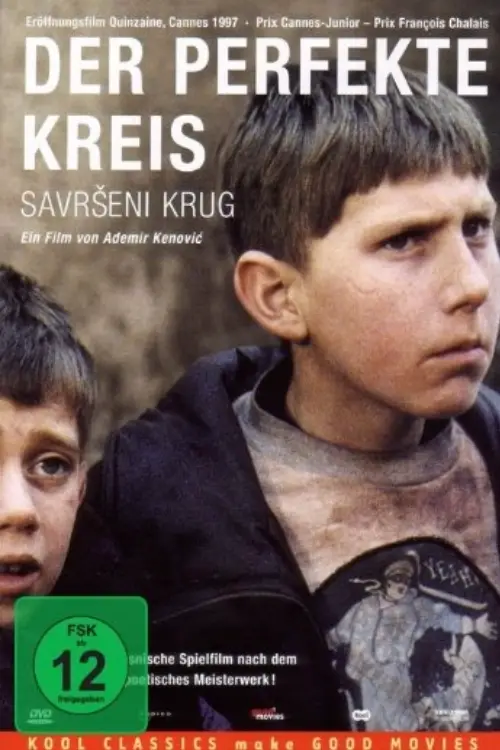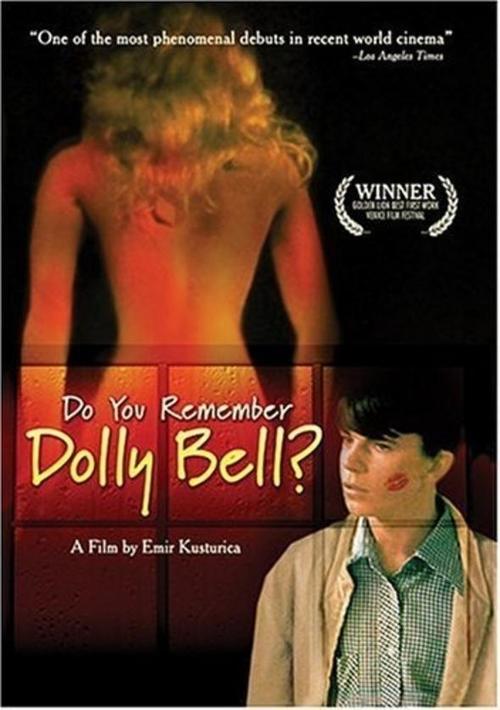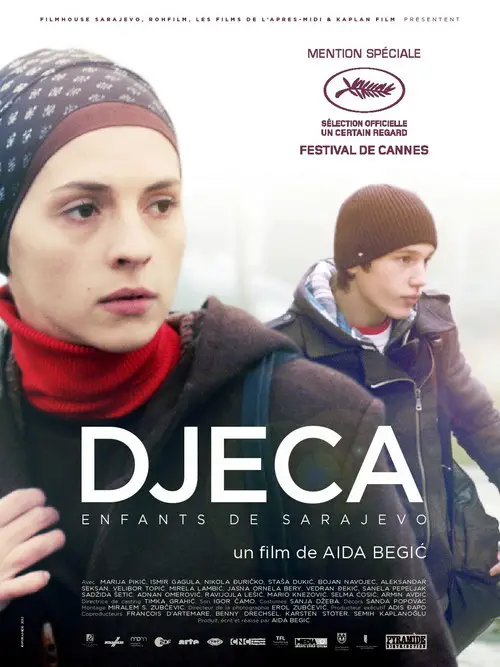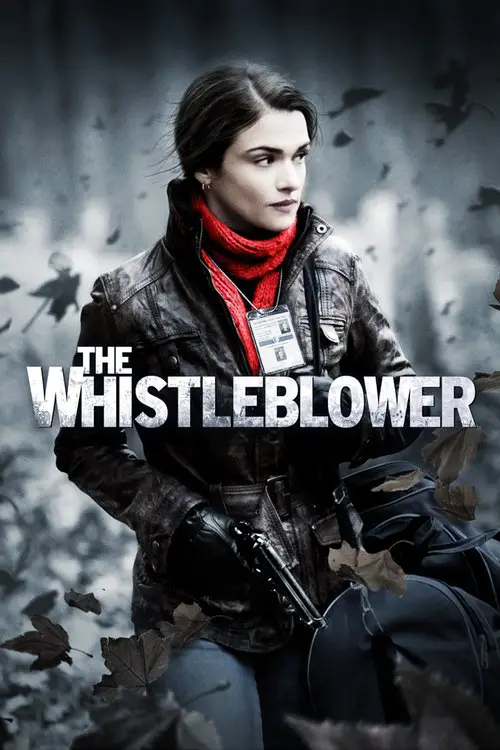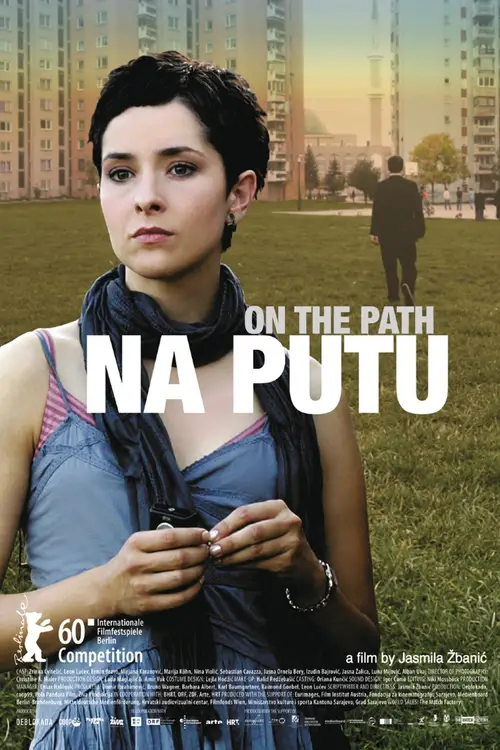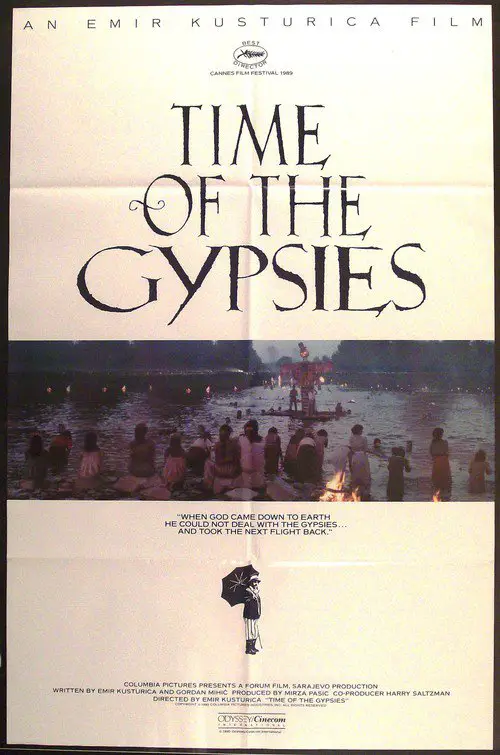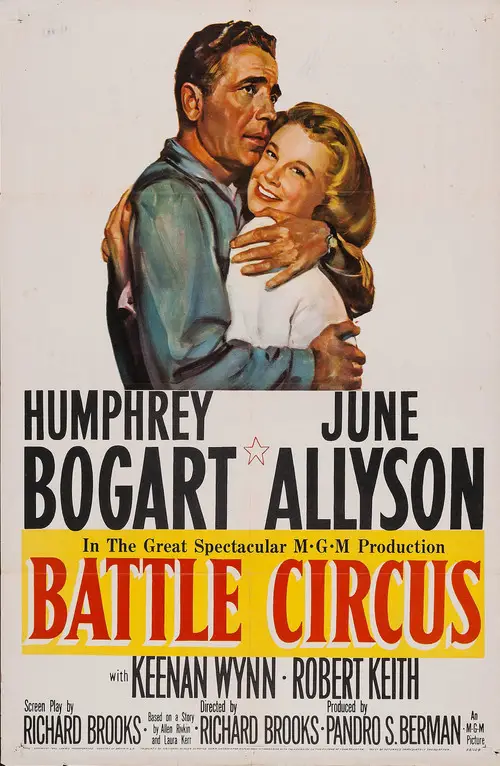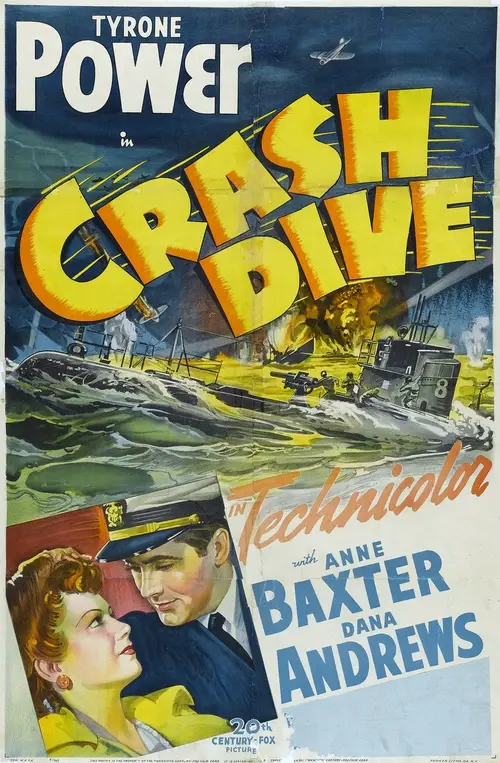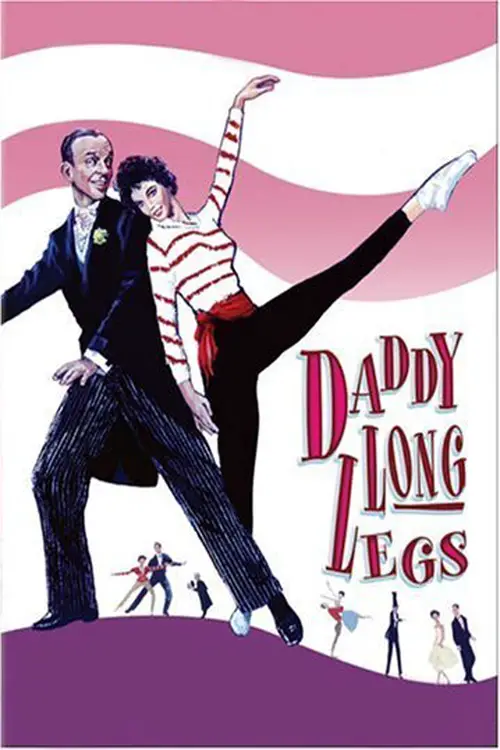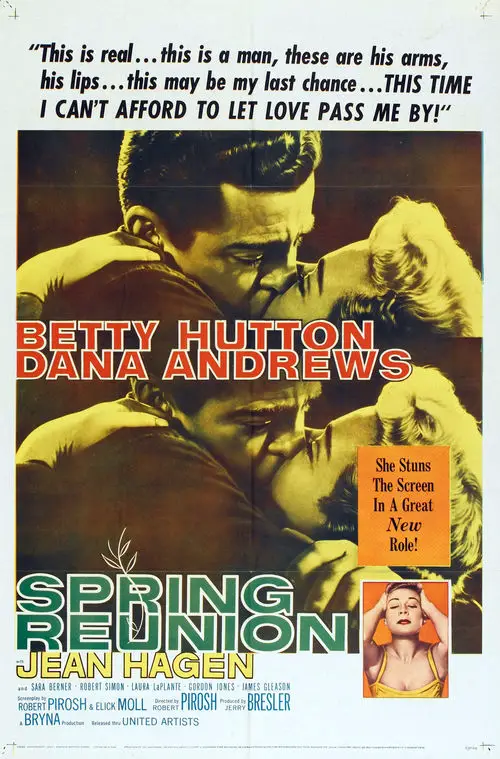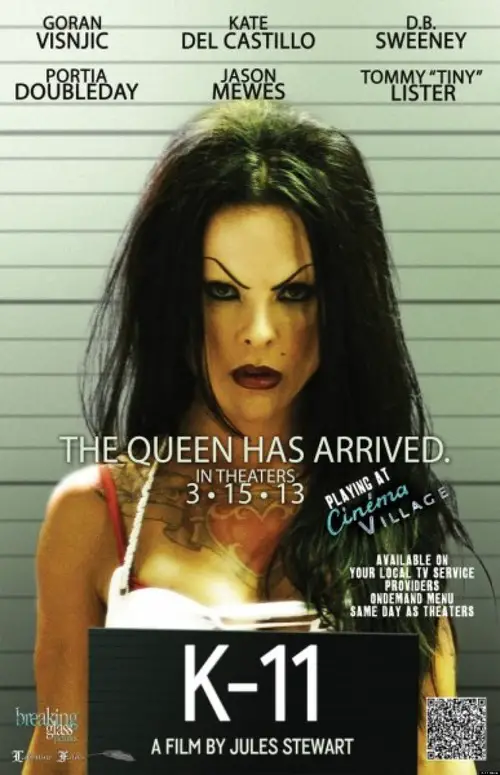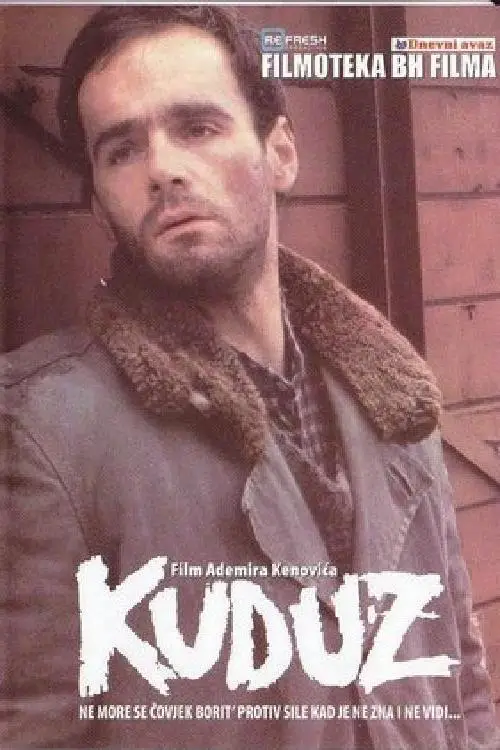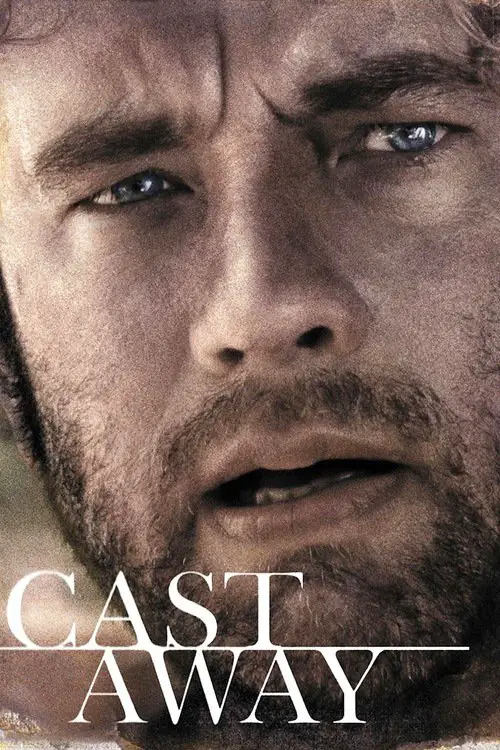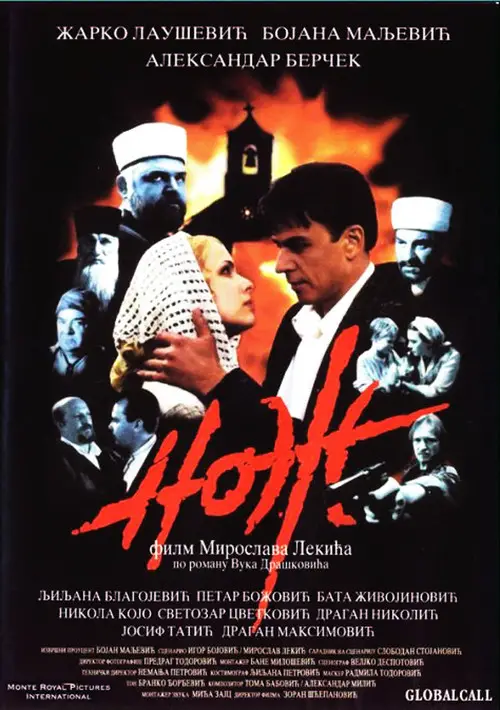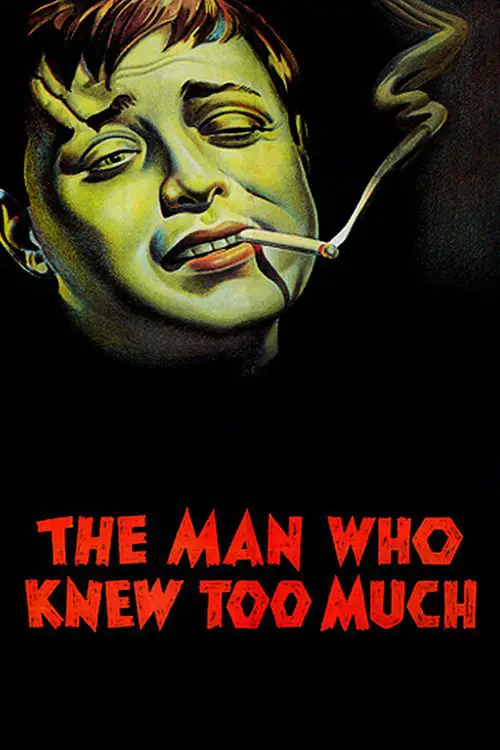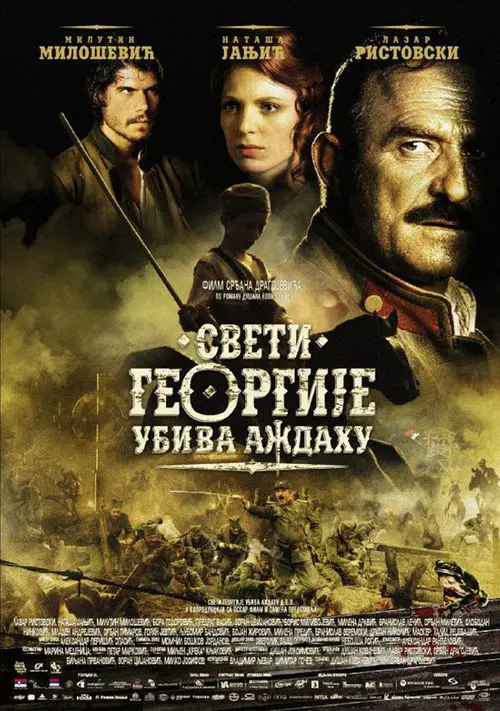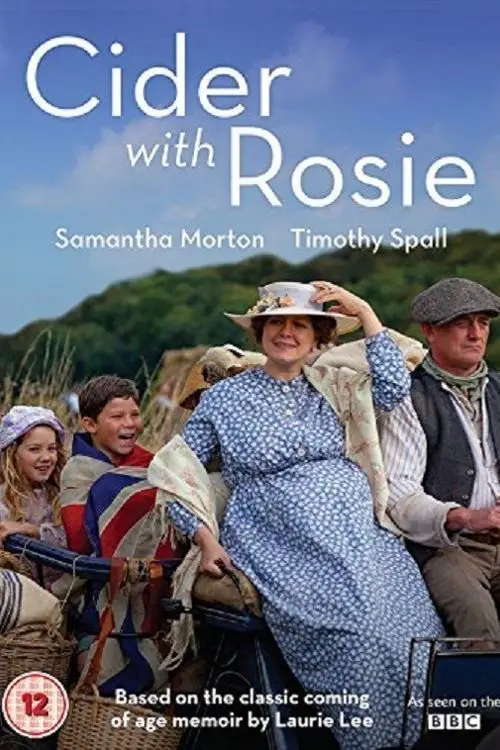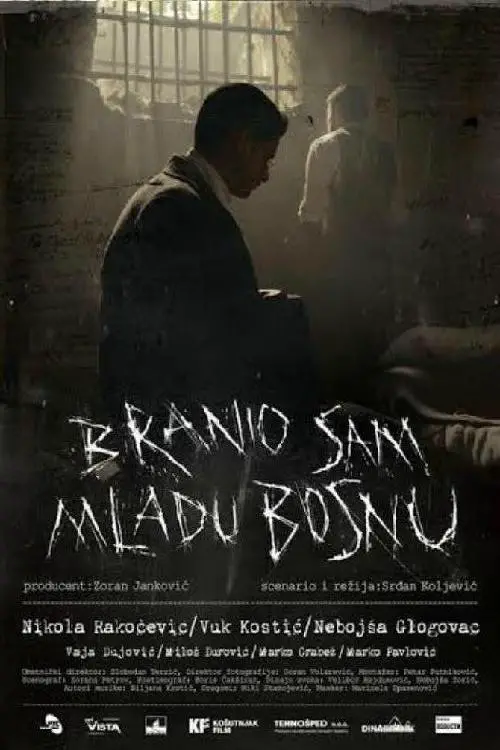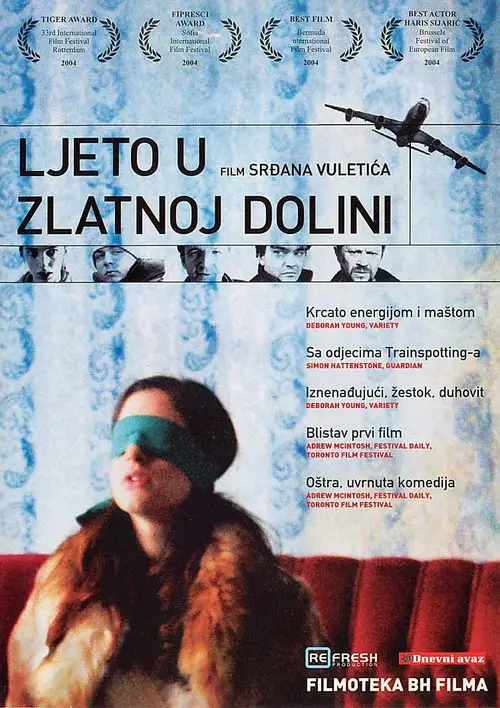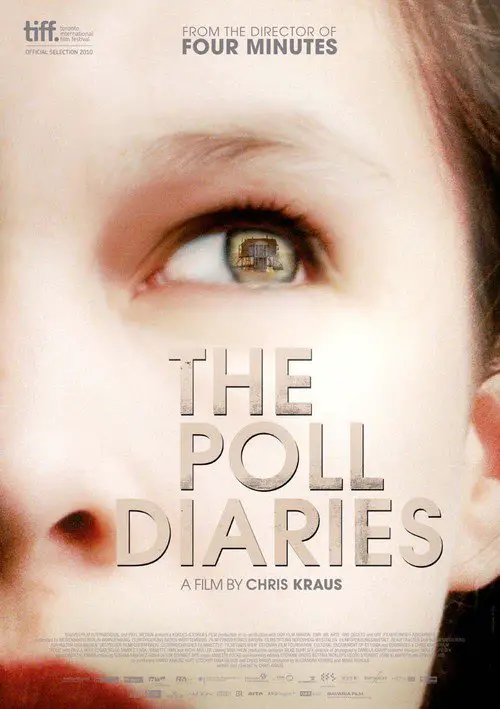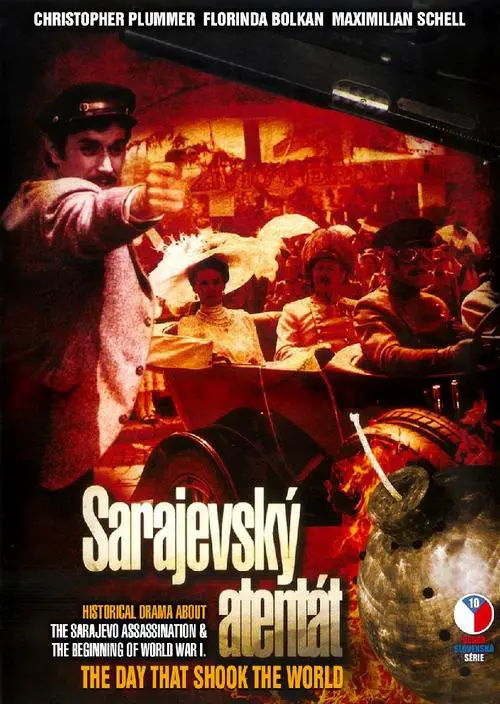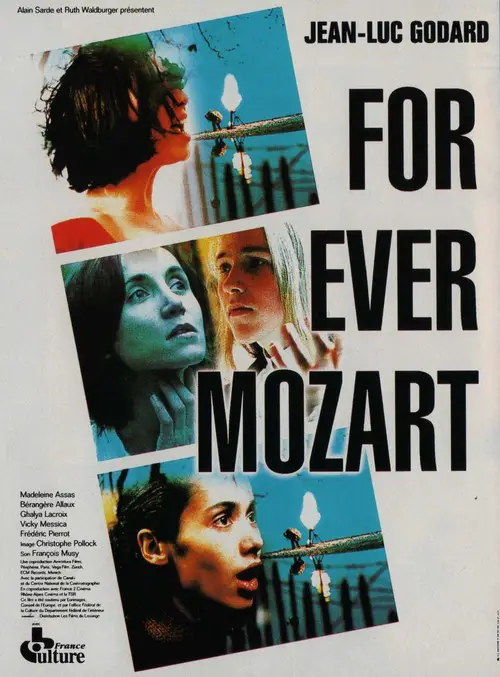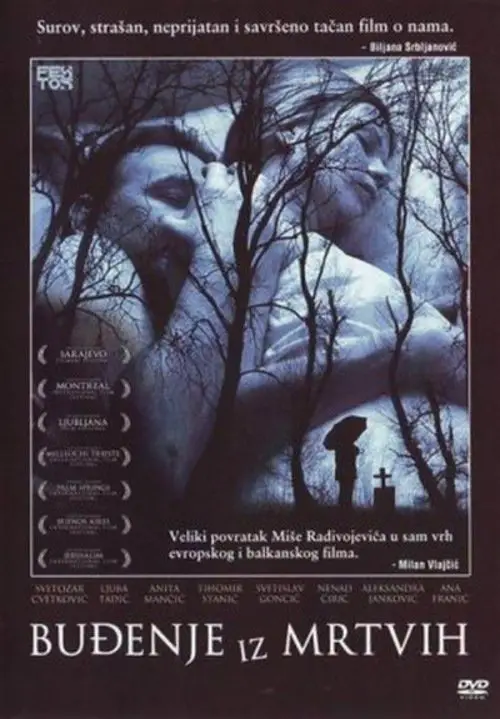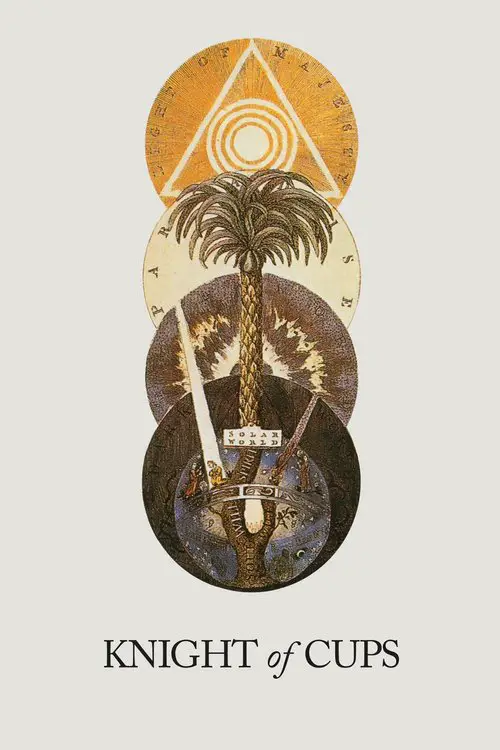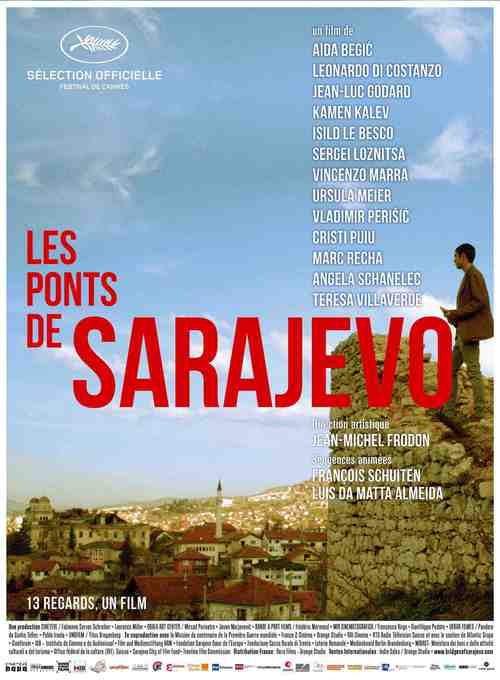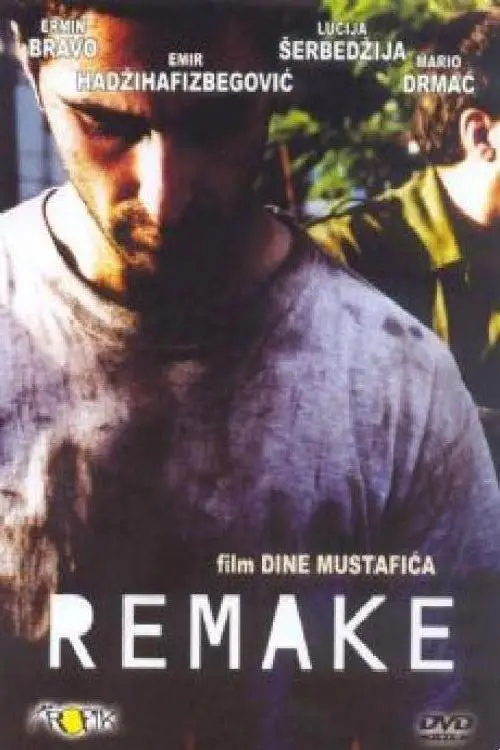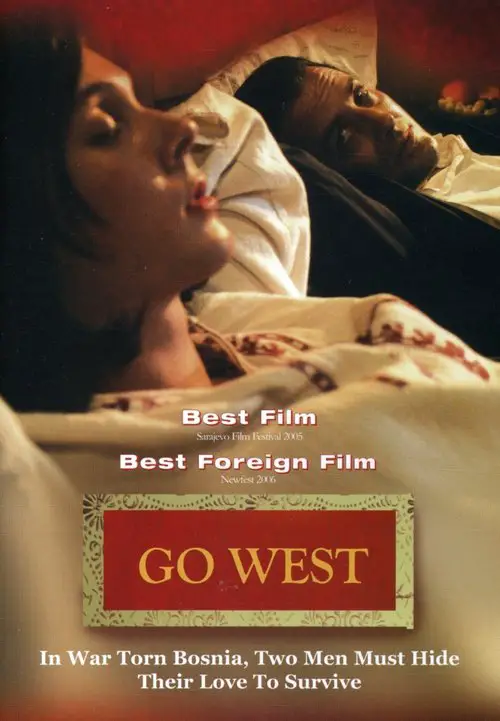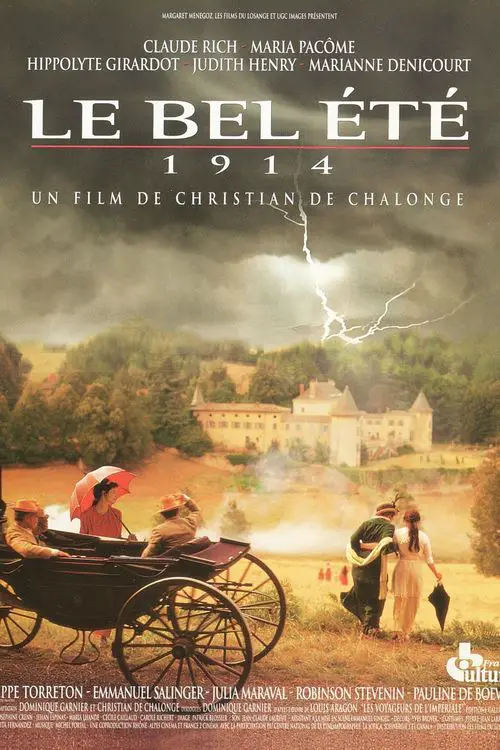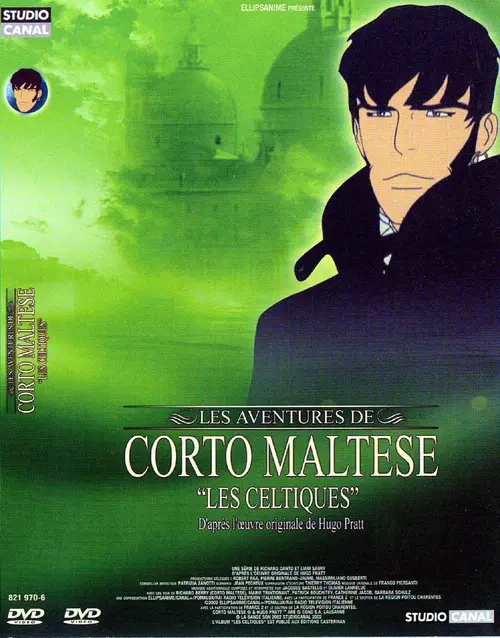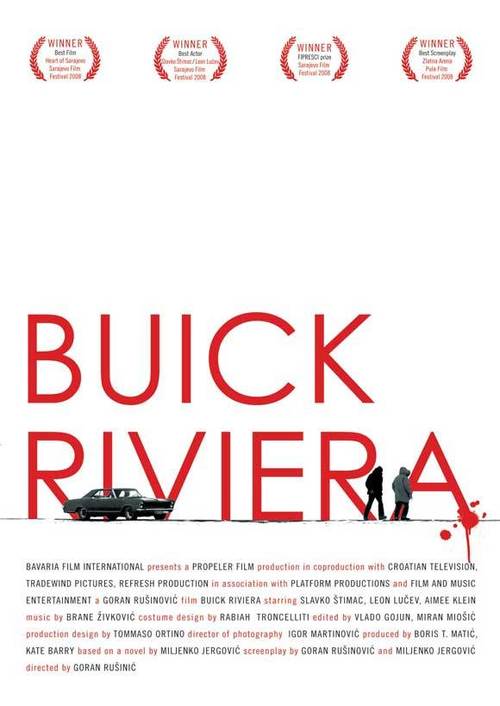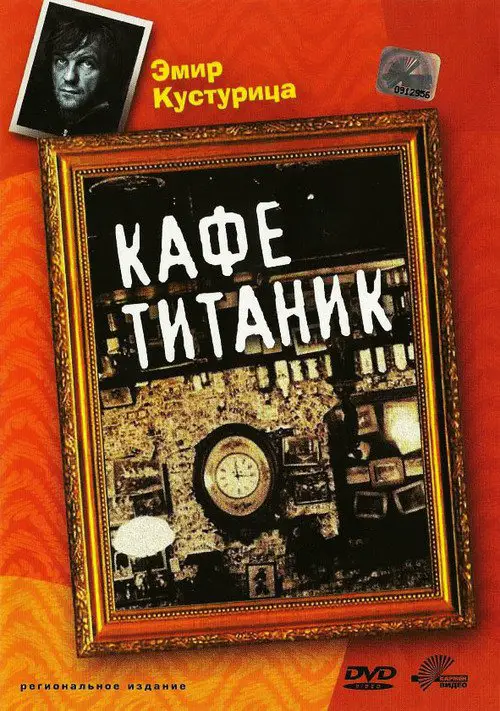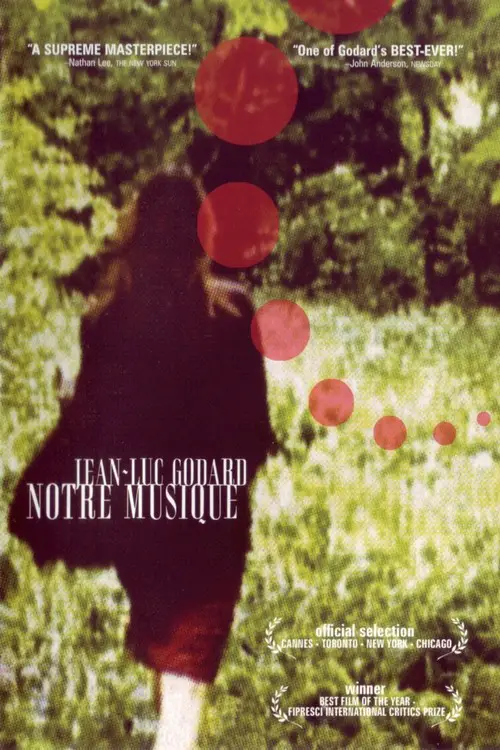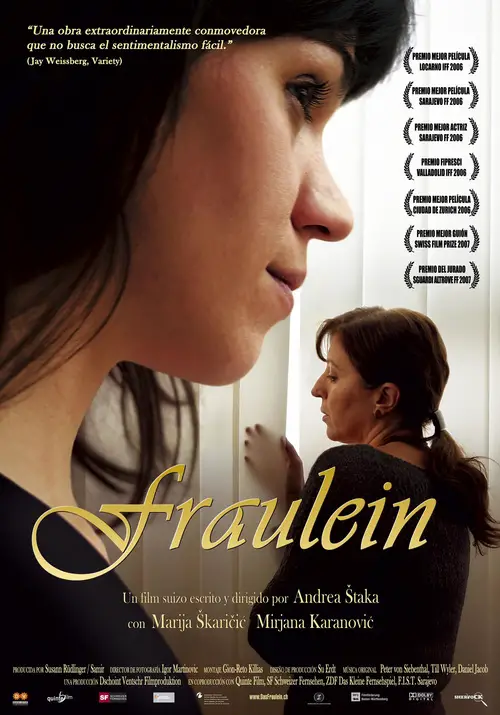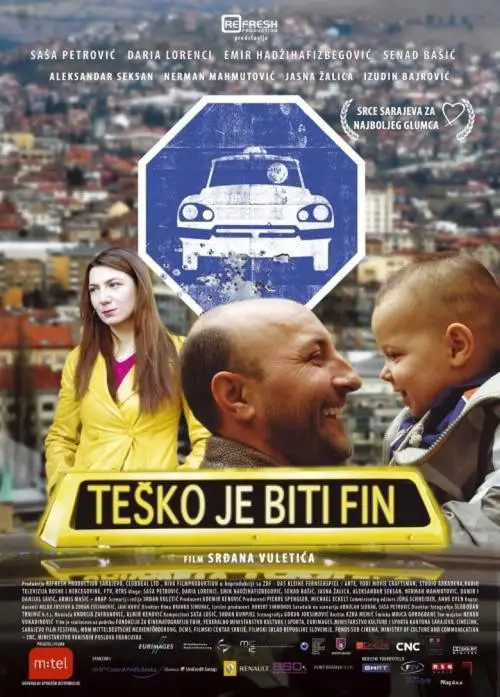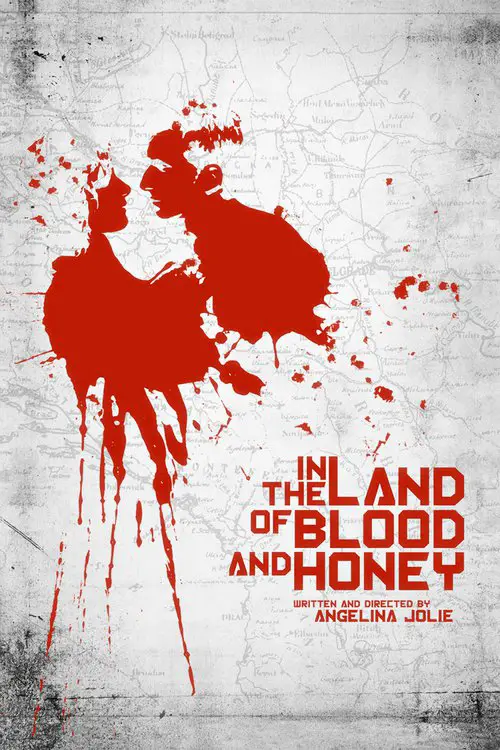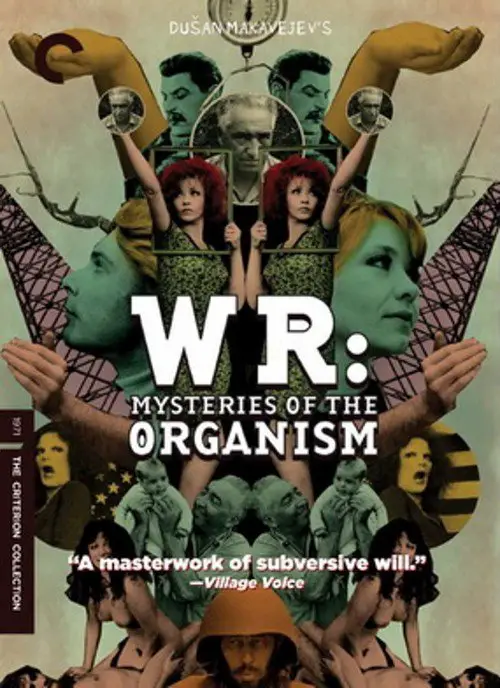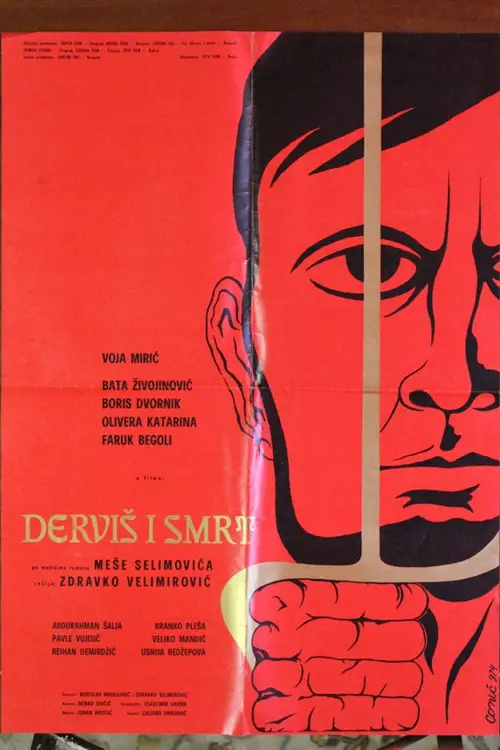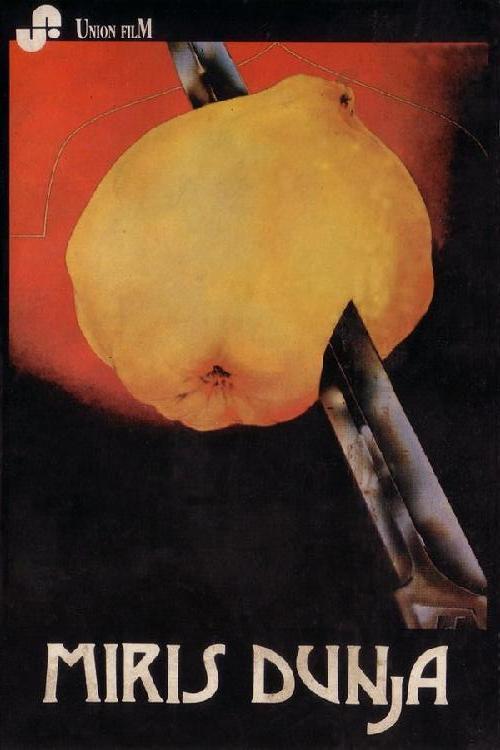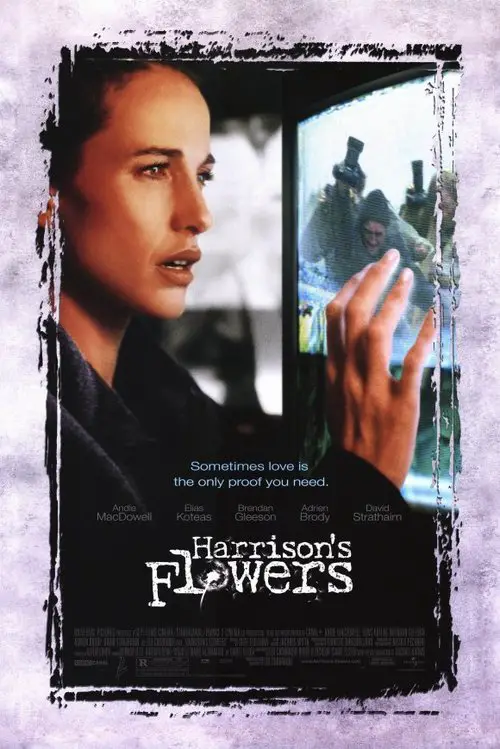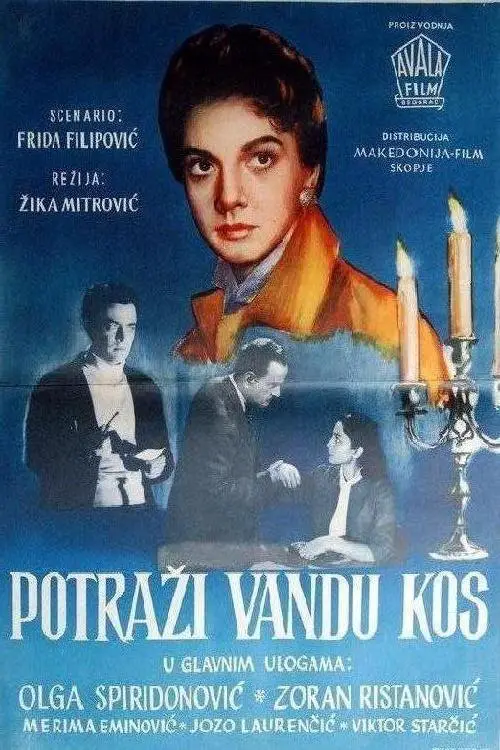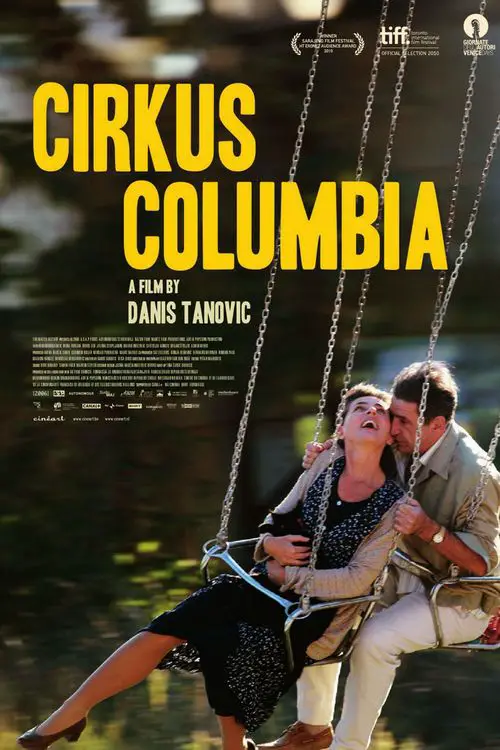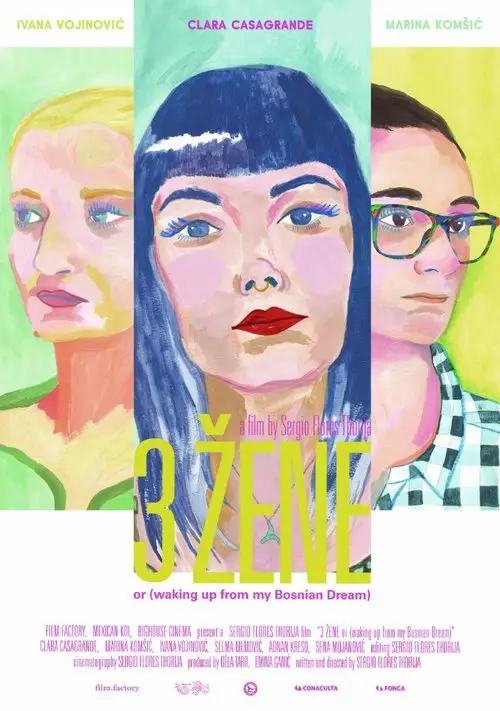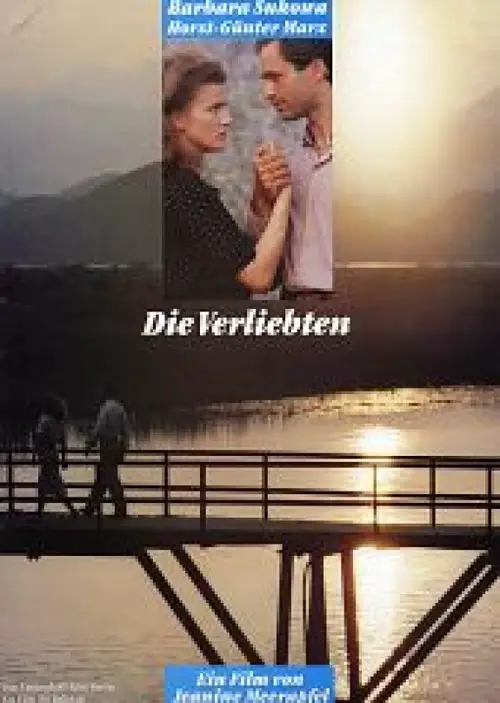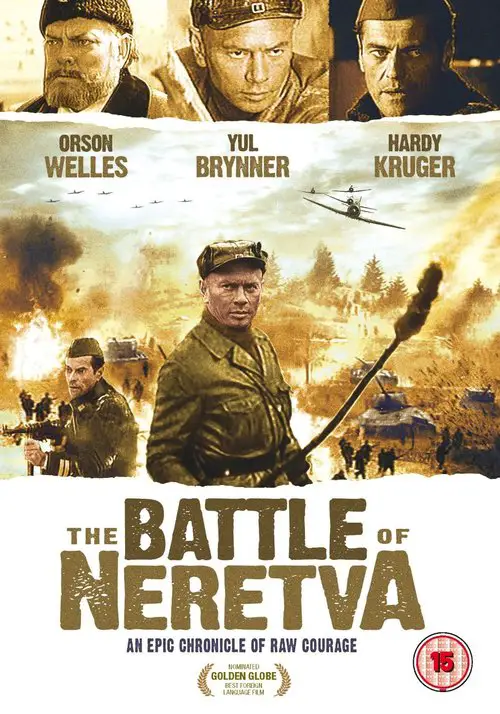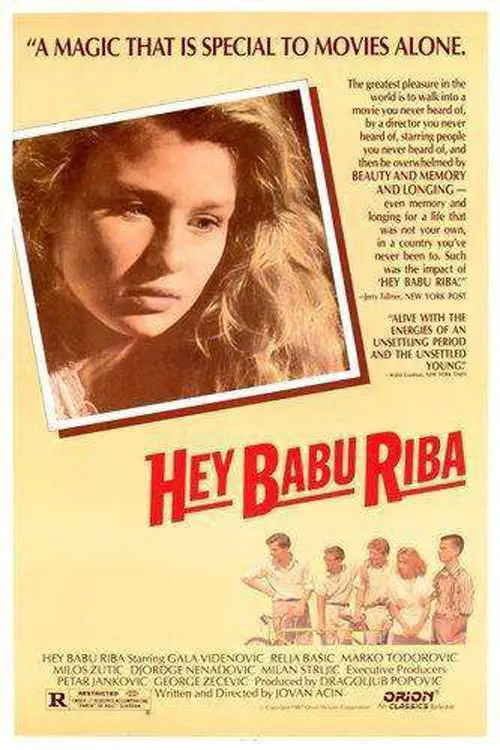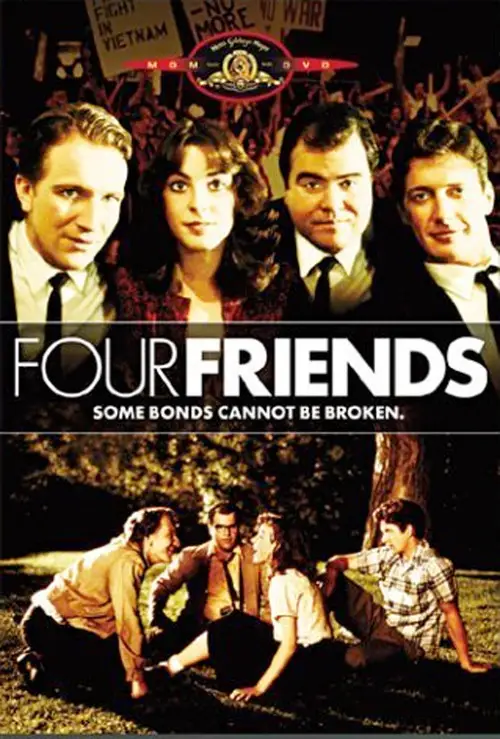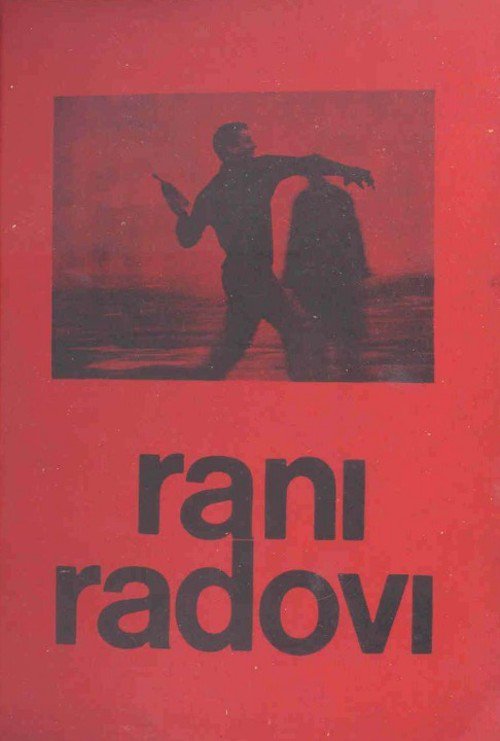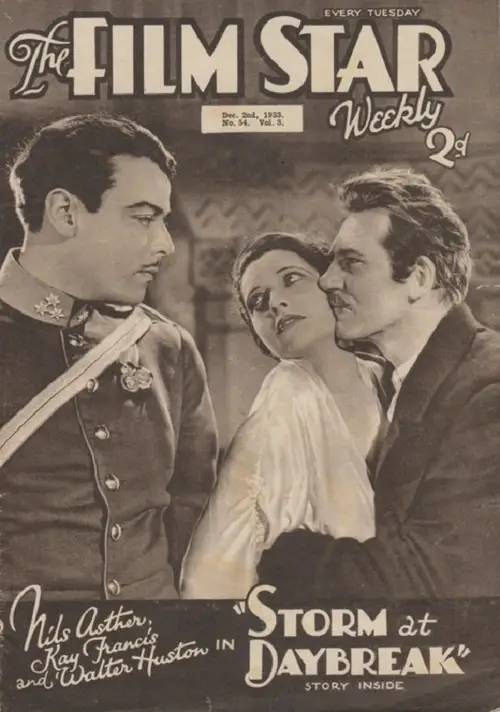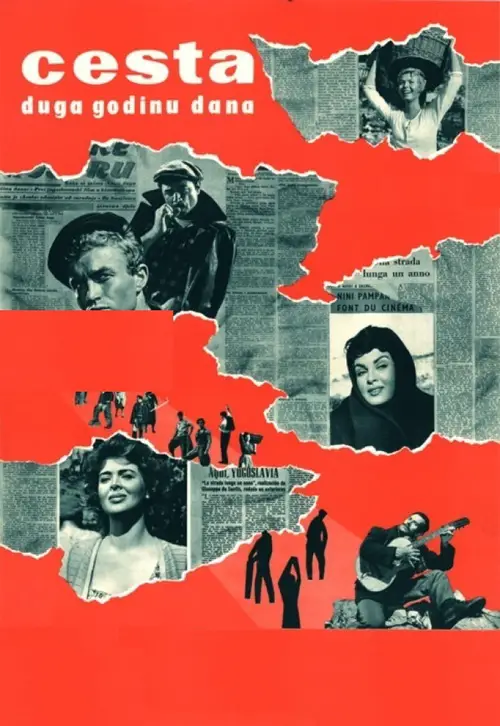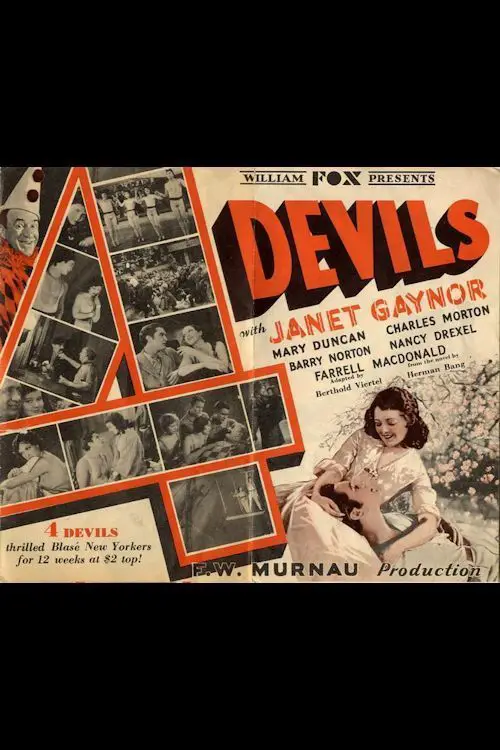My Aunt in Sarajevo (2016)
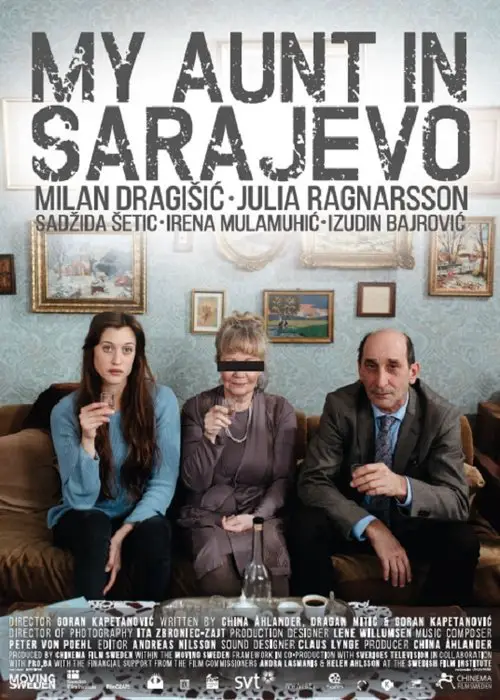
Similar movies
An alcoholic Bosnian poet sends his wife and daughter away from Sarajevo so they can avoid the troubles there. However, he is soon descended upon by a pair of orphaned brothers. The brothers have escaped a massacre in their own village and have come to the Bosnian capital in search of a long lost Aunt. The poet befriends the boys and together they try to survive the horror of the siege of Sarajevo.
A microcosm of the fathomless suffering that remains more than 16 years since the siege of Sarajevo ended, writer-director Aida Begicâs follow-up to her 2008 Cannes Criticsâ Week Grand Prize-winning debut Snow tells the story of two orphaned siblings struggling in a transitional society where only the fittest survive.
Based on the experiences of Nebraska cop Kathryn Bolkovac (Rachel Weisz) who discovers a deadly sex trafficking ring while serving as a U.N. peacekeeper in post-war Bosnia. Risking her own life to save the lives of others, she uncovers an international conspiracy that is determined to stop her, no matter the cost.
Loving young couple Luna and Amar try their best to overcome unexpected obstacles that threaten their relationship. After Amar's dramatic change in a fundamentalist community, Luna tears herself apart searching if love is truly enough to keep the couple together on the path to a lifetime of happiness...
A young Army nurse, Lt Ruth McGara (June Allyson), newly assigned to the 66th MASH during the Korean War, attracts the sexual attention of the unit's commander Dr. (MAJ) Jed Webbe (Humphrey Bogart). Webbe, who has a drinking problem, at first wants a "no strings" relationship. McGara is warned by the other nurses of Webbe's womanizing ways. Despite these initial handicaps, their love flourishes against a background of war, enemy attacks, death and injury. The relationship deepens and uplifts both characters.
A US Navy submarine, the USS Corsair, is operating in the North Atlantic, hunting German merchant raiders that are preying on Allied shipping. Its new executive officer, Lt. Ward Stewart (Power), has been transferred back into submarines after commanding his own PT boat. At the submarine base in New London, Connecticut, he asks his new captain, Lt. Cmdr. Dewey Connors (Andrews), for a weekend leave to settle his affairs before taking up his new assignment. On a train bound for Washington D.C., Stewart accidentally encounters New London school teacher Jean Hewlett (Baxter) and her students. Despite her initial resistance to his efforts, he charms her and they fall in love.
Wealthy American Jervis Pendleton III (Fred Astaire) has a chance encounter at a French orphanage with a cheerful 18-year-old resident, Julie Andre (Leslie Caron). He anonymously pays for her education at a New England college. She writes letters to her mysterious benefactor regularly, but he never writes back. Her nickname for him, "Daddy Long Legs", is taken from the description of him given to Andre by some of her fellow orphans who see his shadow as he leaves their building. Several years later, he visits her at school, still concealing his identity. Despite their large age difference, they soon fall in love.
The story of an old Jewish widow named Daisy Werthan and her relationship with her colored chauffeur Hoke. From an initial mere work relationship grew in 25 years a strong friendship between the two very different characters in a time when those types of relationships where shunned upon. Oscar winning tragic comedy with a star-studded cast and based on a play of the same name by Alfred Uhry.
K-11 follows Raymond Saxx Jr. (Goran Visnjic), a powerful record producer who wakes from a drug-induced blackout to find himself locked up and classified "K-11." Plunged into a nightmarish world ruled by a transsexual diva named Mousey (Kate del Castillo), Raymond is truly a fish out of water. Complicating matters are a troubled young transgender named Butterfly (Portia Doubleday), a predatory child molester (Tommy 'Tiny' Lister) and the ruthless Sheriff's Deputy, Lt. Johnson (D.B. Sweeney). Ray's struggle to contact the outside world and regain his freedom seems impossible, but he must learn to navigate this new power structure if he is ever going survive and be in control of his life again.
"A," a Greek filmmaker living in exile in the United States, returns to his native Ptolemas to attend a special screening of one of his extremely controversial films. But A's real interest lies elsewhere--the mythical reels of the very first film shot by the Manakia brothers, who, at the dawn of the age of cinema, tirelessly criss-crossed the Balkans and, without regard for national and ethnic strife, recorded the region's history and customs. Did these primitive, never-developed images really exist?
Life is a Miracle (Serbian: Život je Äudo) is a Serbian drama film. It was entered into the 2004 Cannes Film Festival. Luka has moved to Bosnia from Belgrade with his mentally unstable wife and his football-playing son, MiloÅ¡, to run a railway station and act as caretaker. Utterly engrossed in his work and blinded by natural optimism, Luka remains deaf to the increasingly persistent rumblings of war, which has broken out in Croatia and threatens to spread. When the conflict explodes, MiloÅ¡ is denied his place on the football field when he must join the Serbian army, and his wife disappears on the arm of a Hungarian musician. Eventually, he receives news that MiloÅ¡ has been taken prisoner of war. Luka considers suicide, but a profiteering acquaintance presents him with Sabaha, a Bosnian Muslim whom he has taken hostage. Luka intends to exchange Sabaha for MiloÅ¡, but the two fall in love after they are forced to flee deeper into Serb-controlled territory...
After the release from prison, small-time criminal is marrying his girlfriend and lives a straight and poor, but happy life with her and her daughter. However, his happiness is shattered by wife's infidelity. Driven mad by jealousy, he kills her and her lover and runs into mountains, thus escaping law for years. This film is based on the true story about Junuz KeÄo, last Bosnian outlaw.
Chuck, a top international manager for FedEx, and Kelly, a Ph.D. student, are in love and heading towards marriage. Then Chuck's plane to Malaysia ditches at sea during a terrible storm. He's the only survivor, and he washes up on a tiny island with nothing but some flotsam and jetsam from the aircraft's cargo. Can he survive in this tropical wasteland? Will he ever return to woman he loves?
Pretty Village, Pretty Flame (Serbian: Lepa sela lepo gore) is a 1996 Serbian film directed by Srdan Dragojevic that gave uniquely bleak yet darkly humorous account of the Bosnian War. It is considered a modern classic of Serbian cinema.[citation needed] Almost 800,000 people went to see the movie in cinemas across Serbia. This equates to approximately 8% of the total country's population at the time of the film's release. The plot, inspired by real life events that took place in the opening stages of the Bosnian War, tells a story about small group of Serbian soldiers trapped in a tunnel by a Muslim force. The film's screenplay is based on an article written by Vanja Bulic for Duga magazine about the actual event. Through flashbacks that describe the pre-war lives of each trapped soldier, the film describes life in former Yugoslavia and tries to give a view as to why former neighbours and friends turned on each other.
In attempt to find out who he is and where his roots lie, Alija Osmanovic discovers something far deeper and more important. He slowly discovers an evil that follows him as his destiny regardless of what his ancestors were called.Trying to find the reasons for this evil, he finds himself in a vicious circle. Running away from an irrational fear within him, he finds the road to his faith...
St. George Slays the Dragon (Serbian: Sveti Georgije ubiva aždahu) is a Serbian World War I drama. The movie starts with Kingdom of Serbia battling the remaining Turkish occupiers during the First Balkan War in 1912 and ends with the outbreak of World War I in 1914. The movie's central theme is a love triangle between the village gendarme ÄorÄe, his wife Katarina and the young disabled war veteran Gavrilo who was previously engaged to Katarina before he went to war and lost his arm in battle. Even though Katarina in the meantime married ÄorÄe, she still has affection for Gavrilo. At the onset of World War I, all able-bodied men in the village are recruited for combat. Left in the village are only women, children and disabled veterans from previous Balkan wars. Rumours start circulating that the invalids in the village are trying to take advantage of the situation by making their moves on the women in the village â the wives and sisters of the recruited men.
Follow a group of international journalists into the heart of the once cosmopolitan city of Sarajevoânow a danger zone of sniper and mortar attacks where residents still live. While reporting on an American aid worker whoâs trying to get children out of the country, a British correspondent decides to take an orphaned girl home to London.
The horrors of war are examined from the view points of lifelong friends (Linus Roache, Vincent Perez), who end up on opposing sides in the civil war in Sarajevo. One is an expert marksman, who trains the snipers used to terrify the city and the other becomes a freedom fighter, who rejects his friend's offer to gain an escape from the city. As might be expected, the two eventually have to face-off against one another.
At the traditional Muslim funeral service for his father Fikret Varupa, sixteen year old boy from Sarajevo, learns that his father owes money to Hamid, a man he does not even know. The debt is considerable and Hamid does not want it to go to the grave with the body, so the debt automatically passes from the father to the son. Since in Bosnia this way of collecting debts, at a funeral, is considered to be utterly humiliating, it is never, ever applied. Fikret and his entire family become subjects of ridicule. Fikret, who is practically still a child, is decisive to "redeem his father's soul". Wishing to repay his father's debt and to secure the forgiveness, Fikret wanders into the real world of Sarajevo, the world that is ruled by post-war chaos, misery and poverty and becomes an ideal target for two corrupted policemen who wish to "help" him: they plant the kidnapped girl on him.
For Ever Mozart is an episodic film that follows a theater troupe from France attempting to put on a play in Sarajevo. Along their journey they are captured and held in a POW camp, and they call for help from their friends and relations in France. Director Jean-Luc Godard presents stories about this troop to ask how one can make art while slaughters like the one in Bosnia are taking place, and he throws in a strong critique of the European Union. For Ever Mozart is one of Godard's most disjointed and difficult films. Its stories sometimes seem to form a whole and at other times the links among them are unclear. One gets the impression that in each episode Godard attempts to start a film only to come to the conclusion that it is impossible to continue. It features some of the most beautiful shots of tanks in the cinema.
The story takes place at the beginning of the bombing, both in Belgrade and in one small town in Serbia, at the end of March 1999. Forty-year-old Mickey, an unaccomplished writer, a disillusioned assistant professor at the Faculty of Fine Arts, a discouraged democrat and a columnist, dismissed from a famous daily newspaper, emerges from his own grave and enters into his own life. Within 48 hours, he will try to achieve all those things he couldn't while he was alive. At the same time, post-mortem, he will try to save the dignity of his own community and his tribe, not taking too much care of himself.
In the nineties the Yugoslavia Federation falls apart in bloody wars. Perpetual student Milan, a Serb from a patriarchal community and Kenan, a Muslim cellist, are a homosexual couple living in Sarajevo. Their lives, intimate and public, are shaken up by the aggression in Bosnia and Herzegovina, whose devastating consequences unfold in inter-ethnic hatred. Trapped in Sarajevo during the siege of the Serb forces, the lovers manage to flee to Milan's home village and there they take shelter, waiting for Milan's father, Ljubo, to find a way to the Netherlands. Witnessing the brutality of Serb forces and their hatred towards Muslims, Milan desperately improvises: he disguises Kenan as a woman and begins to present him as his wife, Milena, a secret discovered by Milan's best friend, Lunja. Milan is drafted into the army and the situation becomes almost unbearable for Kenan. His one companion, is Ranka, a waitress in a local café, a woman whose dark secrets terrify most of the villagers ...
Based on a short story of Ivo AndriÄ, famous Yugoslav Nobel Prize winner, this film is set in Sarajevo during WW2. Mento is a humble, poor Jew who runs a caffe. Stjepan is a man of unknown background, with no social or psychological dimension, who joined Nazis to leave any sort of trace behind himself.
Jean-Luc Godard's poetic meditation on war, violence and defeat. The film is structured in three parts. The three segments are "Hell", "Purgatory", and "Heaven". The first segment is a montage of war images from documentary and fictional sources. The second concerns two young Jewish women attending a European arts conference in Sarajevo. The final segment concerns the after life.
Story about a forty-something Sarajevo taxi driver named Fudo (Sasa Petrovic) who decides to take control of his own destiny. Fudo doesn't earn much, so he supplements his income by offering tips to the local criminal syndicate and turning a blind eye to their nefarious dealings. One day, after offering a particularly bad bit of advice to a violent gangster, Fudo is badly beaten. When Fudo's wife Azra (Daria Lorenco) discovers what has happened, she decides to take the couple's infant son and move out. Now determined to win his wife back and restore peace in the home, Fudo decides to go straight. But cleaning up his act isn't going to be easy, because after borrowing enough cash from black market dealer Sejo (Emir HadzihafizbegoviÄ) to purchase a van and then refusing to aid him in any underhanded dealings, the only person willing to cut him any slack is the sympathetic Azra.
A dense film that cuts up footage of a primary plot of two young Yugoslavian girls, one a politico and the other a sexpot, and an affair with a visiting Russian skater. Mixing metaphors of Russia's relationship with Yugoslavia, intercut with footage and interviews with Wilhelm Reich and Al Goldstein of Screw magazine. The film applies Reich's theories of Orgone energy and analogies of Stalinism as a form of Freudian sexual repression. Also known as W.R. The Mysteries of the Organism in English subtitled version. Was banned in Yugoslavia shortly after it was made.
Ahmet Nurudin is a dervish and head of the Islamic monastery of the Mevlevi order in Sarajevo. He is a personification of morale and dogmatic belief, everything that Muslim religion of the Ottoman rule rests on. Throughout his life, the atmosphere of the city, the relations with the judge and the mechanism of government, the image of Ottoman Empire at the beginning of the nineteenth century is being revealed. Based on a highly praised novel by MeÅ¡a SelimoviÄ.
Harrison Lloyd is a Pulitzer-winning photojournalist. His wife and family are making it hard for him to keep his mind on his work when he's in a war zone, and he wants to change jobs to something less stressful. But he's got one last assignment, in war-torn Yugoslavia, in 1991, at the height of the fighting. Word comes back that he apparently died in a building collapse, but his wife Sarah (also a journalist for Newsweek) refuses to believe that he's dead and goes looking for him. She's helped immensely by the photo-journalists Eric Kyle and Marc Stevenson that she runs into over there; together, they're determined to make it through the chaotic landscape to Vukovar, which is not only the nexus of the war but where she believes Harrison is located. Meanwhile, Harrison's son Cesar is looking after his father's prized greenhouse, keeping hope, and flowers, alive.
Ivana, Clara and Marina are three women from different backgrounds living at the same time in Sarajevo. Ivana dreams about moving to the USA, Clara works during the night to save money for her studies and Marina is in love with her best friend who is moving to a different country. Each one fights to achieve her own goals, but most of the time society doesn´t accept what's not in accordance with its norms.
In this melodramatic tale, the well-made plans of a career-obsessed woman are derailed when she sets her sights on a young man who is plainly not very interested in her. In the story, Katherina is an ambitious reporter for German television, and her Yugoslavian family background makes her a natural to cover stories in that country. While preparing a story on children with dual nationalities, she encounters Peter, a German lad who is researching his father's war record to see if he was guilty or innocent of war crimes. She brings Peter to see her family, and later her wooing efforts finally seem to bring her some promise of a relationship.
In America it frequently shows under the title Hey Babu Riba. In 1985, four middle-aged Yugoslav emigres return to Belgrade for the funeral of Mariana, their beautiful compatriot. They called her Esther, for Esther Williams, she was the coxswain for their four-man rowing team, and they each loved her. They'd last seen her in 1953, when they rowed her across the Adriatic, pregnant, to join her exiled father in Italy. In flashbacks we learn the story of their youthful baptism into sex, smoking, rock and roll (Hey Ba-ba-re-bop), Hollywood and Swedish films, blue jeans on the black market, and their rivalry with Ristic, the Communist Party youth leader for whom they had instant antipathy.
Also known as Moritorium and Georgia's Friends, Four Friends follows the titular quartet from high school to young adulthood. The film is set during the tumultuous 1960s, an era when everyone's values were turned inside out, shaken around, and reassembled. The central character is first-generation American Craig Wasson, who confounds his Yugoslavian father (Miklos Simon) by pursuing his own let-it-all-hang-out lifestyle. Wasson's best friends are athlete Jim Metzler and chubby Michael Huddleston; all pursue the affections of bewitching Jodi Thelan. Though they are obviously deeply in love with one another, Wasson and Thelan continue to foolishly avoid a long-term commitment as the sixties unfold around them. Four Friends calls for a fresher approach than the one offered by director Arthur Penn, whose handling of the material is much too pat and old-fashioned.
Inspired by Karl Marx's "Das Kapital", three men and a girl named Jugoslava decide to wake up the conscience within the working class and peasants. Faced with the primitivism and a lack of morale, their revolution fails and the girl is one to be sacrificed as a witness of their unsuccessful attempt.
Italian director Giueseppe DeSantis was the creative force behind this Yugoslavian "slice of life" drama. The title translates as The Year-Long Road; accordingly, the plot concerns a joint, voluntary effort between Italy and Yugoslavia to construct a highway along the countries' Naturally, this animosity wreaks havoc on the various Romeo-Juliet romances in the region. All is resolved when oil is discovered on one of the islands. An American oil company is finally able to establish détente between the warring factions, smoothing the path for the long-delayed marriages of three young couples.
Film historian and collector William K. Everson stated that the only surviving print was lost by actress Mary Duncan who had borrowed it from Fox Studios. In the December 1974 issue of "Films in Review," he explained that Mary Duncan, one of the film's stars, wanted it to show to a group of friends in Florida. The star was aware that it was a dangerous nitrate print and assumed that Fox had others. She threw the only copy in the ocean, a mistake characterized by Everson as "a monumental blunder to rank with Balaclava, Sarajevo, and the Fall of Babylon as one of history's blackest moments."
© Valossa 2015–2026
| Privacy Policy
